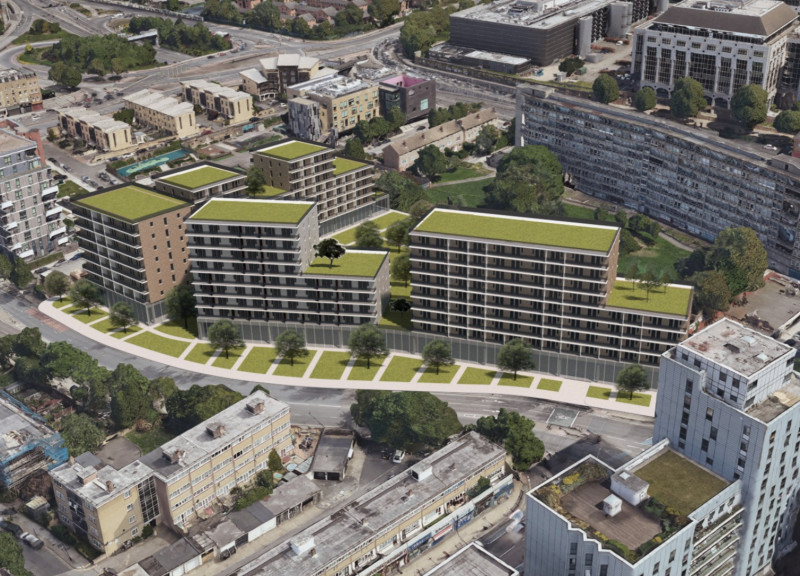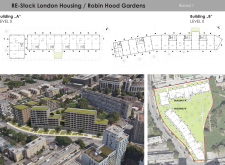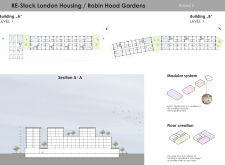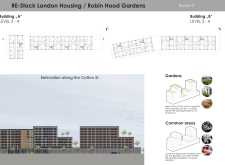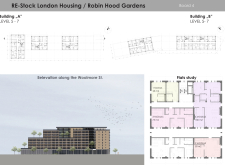5 key facts about this project
RE-Stock London Housing, located at Robin Hood Gardens, is an initiative designed to provide flexible urban housing. The project features two main structures, Building "A" and Building "B," which span several levels. The overall design focuses on modularity, allowing for various living arrangements that meet the diverse needs of residents while incorporating community spaces to promote social interaction.
Modular Design
The design employs a modular approach, enabling flexibility in apartment configurations. Each unit is based on the smallest module, referred to as micro-apartments. This system allows for different sizes and layouts, ensuring that living spaces can adapt to the changing demands of residents. The focus on modularity creates an efficient use of space, addressing the realities of urban living.
Spatial Organization
Both buildings are organized across multiple levels, each serving specific functions. The lower floors include commercial areas, providing essential services close to home. This arrangement encourages a lively neighborhood atmosphere, where residents can interact with local shops and businesses. The integration of commercial spaces within the residential complex enhances convenience and fosters a sense of community.
Green Integration
Rooftop gardens are a prominent feature of the design, offering green space that residents can access. These gardens not only enhance the buildings' aesthetics but also create outdoor areas that promote well-being. They serve as places for relaxation and social gatherings, particularly valuable in urban environments where access to nature can be limited.
Architectural Presence
The elevations along Cotton Street and Woolmore Street engage with the surrounding area, using a rhythmic arrangement of windows and architectural details. This design choice allows for natural light while providing a sense of privacy for residents. The buildings' forms create a visual dialogue with the urban landscape, making them a part of the city's fabric.
The rooftop gardens provide not just beauty but a connection to nature, inviting residents to step outside and enjoy the environment. They create a contrast to the more rigid urban landscape and encourage a lifestyle that values outdoor experiences.


